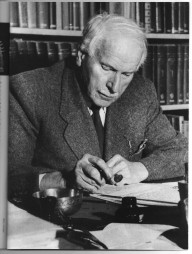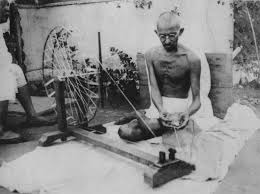One of the great contributions in the work of Carl Jung was the delineation of “The Shadow,” a concept partly introduced by Freud in his conception of the “Id,” but given a fuller exposition in the work of Jung.
One aspect of the Jungian shadow is “an unconscious aspect of the personality which the conscious ego does not identify in itself. Because one tends to reject or remain ignorant of the least desirable aspects of one’s personality, the shadow is largely negative…” (Wiki)
Jung warned about the common practice of “Projecting” the shadow outwards:
“Obviously, the problem of the shadow plays a great role in political conflicts. If the man who had this dream had not been sensible about his shadow problem, he could easily identified with the “dangerous Communists” of outer life, or with the “grasping capitalists”. In this way he would have avoided seeing that he had within him such warring elements. If people observe their own unconscious tendencies in other people, this is called a “projection”. Political agitation in all countries is full of such projections, just as much as the backyard gossip of little groups and individuals. Projections of all kinds obscure our view of our fellow men, spoiling all possibility of genuine human relationships.
And there is an additional disadvantage in projecting our shadow. If we identify our own shadow with, say, the Communists or the Capitalists, a part of our own personality remains on the opposing side. The result is that we shall constantly (though involuntarily) do things behind our own backs that support this other side, and thus we shall unwittingly help our enemy. If, on the contrary, we realize the projection and can discuss matters without fear and hostility, dealing with the other person sensibly, then there is a chance of mutual understanding or at least of a truce. (pg. 182)”.

We see this today, with people identifying with one political side (Liberals or Conservatives). As one blogger points out:
“So even if we associate with the Communists or the Capitalists, or today Liberals and Conservatives, the very act of identifying with a side empowers the other side because that is the side which our shadow self is projected onto.”
The other side is empowered because the Shadow self contains a great deal of power within it. It is the collective power of all that we have repressed in ourselves.
Jung pointed out that in order to become whole, (and wholeness is largely the final project of Jungian Psychology), we must not Project our Shadow self outwards, onto other people or perceived “enemies,” but must become aware of this Shadow within us. Not repress it, not fight it, not give ourselves over to it completely, but bring awareness to it, and in so doing allow it’s energies to become integrated with our total Self.
It often occurs to me that Mahatma Gandhi was an exemplar of doing this in the Political realm, and could be a model for us moving forward in this way.
Gandhi was unique in steadfastly refusing to ever see his “enemies” as enemies. He strove always to see all people, including his harshest political opponents, people who jailed him or tried to deny his people their rights, and fought them as every turn, he strove to see all of these “enemies” as family or friends.
Gandhi’s goal was to integrate himself into the totality of life, so that “friend and foe” were meaningless distinctions.
It is incredible that one was able to practice in Politics (seen by many as a basically Adversarial system), holding this Philosophy.
Gandhi’s greatest adversary early in his career (in South Africa), was General Smuts. Smuts was at times a brutal adversary, trying to defeat the Indian resistance in a variety of ways, and often breaking his word at key moments in trying to beat down the Indians of the country.
That said, Smuts was so impressed with Gandhi’s constant cheerfulness, constant friendly attitude, and refusal ever to see this apparent “enemy” in Smuts as at all an “enemy.”
“His work in South Africa finished, Gandhi left South Africa with his wife in July 1914. Before he departed, he sent General Smuts a pair of sandals as a gift.
“Smuts wore the sandals every summer at his farm and then returned the sandals to Gandhi on Gandhi’s seventieth birthday. Smuts remarked, ‘I have worn these sandals for many a summer … even though I may feel that I am not worthy to stand in the shoes of so great a man. It was my fate to be the antagonist of a man for whom even then I had the highest respect. … He never forgot the human background of the situation, never lost his temper or succumbed to hate, and preserved his gentle humor even in the most trying situations. His manner and spirit even then, as well as later, contrasted markedly with the ruthless and brutal forcefulness which is the vogue in our day…'”
– Gandhi, M. The Essential Gandhi, Louis Fischer (ed.). Random House, New York, 2002.

Gandhi also was unique in always looking “inward.” Whenever a problem seemed to arise in the “outer” political machinations of the country, the first place Gandhi looked was “within.”
In this way, Gandhi seems a fascinating exemplar to study in relation to taking to heart Carl Jung’s later injunction not to project one’s Shadow self –the dark or repressed elements within oneself — onto the external world.